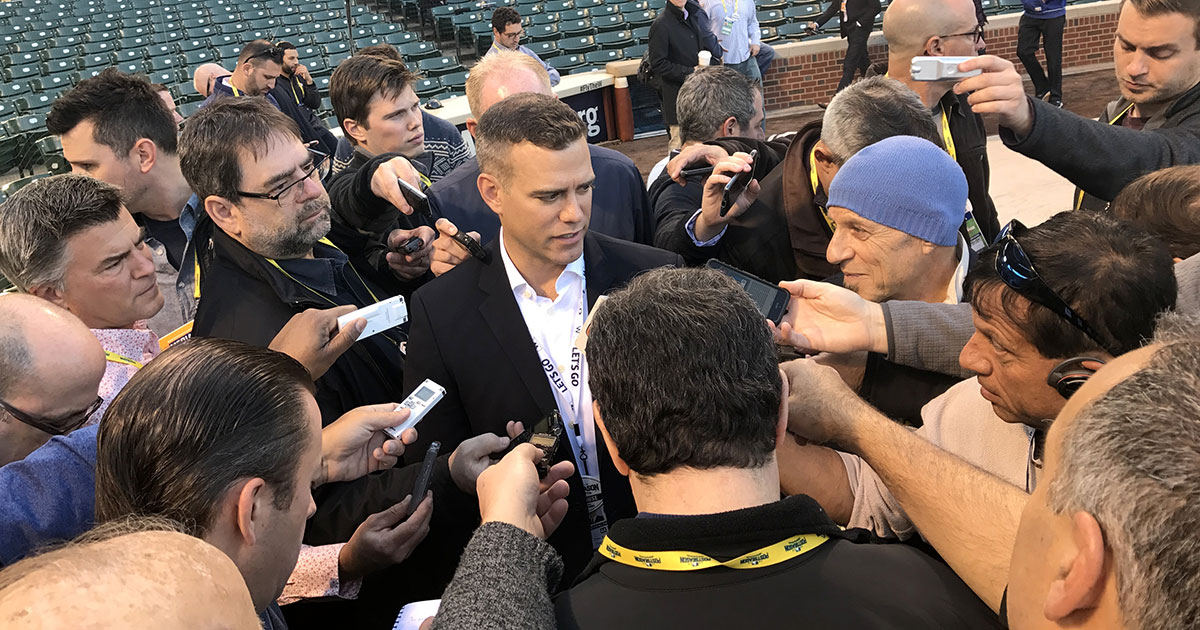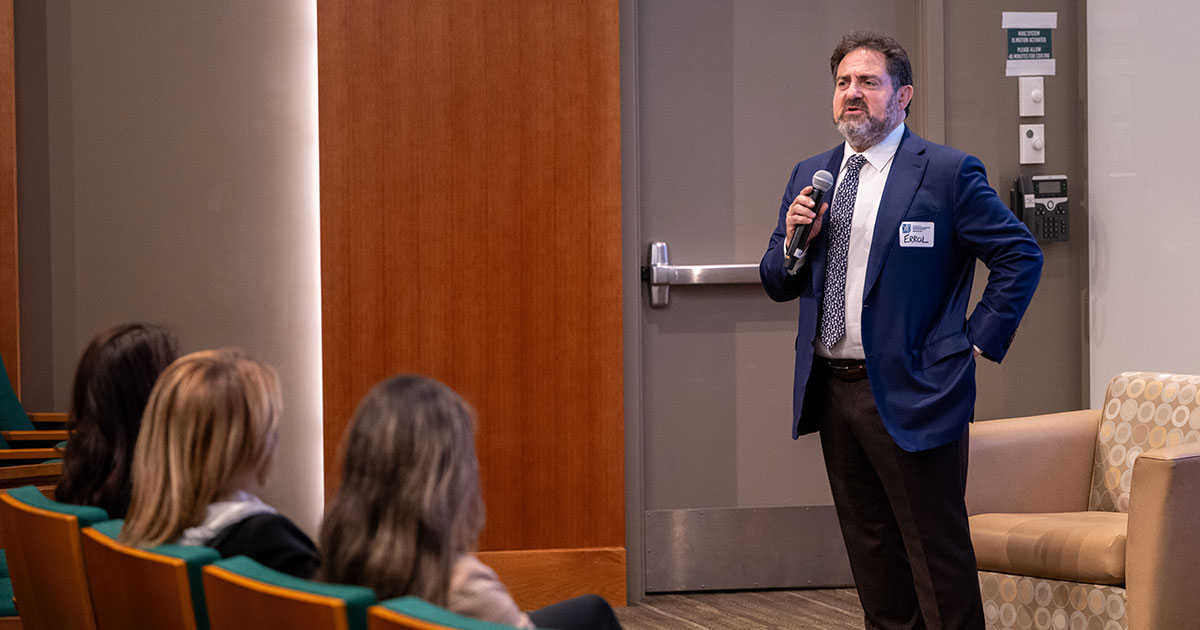Do Leaders Have a Shelf Life? Not if They Follow This Advice.

It’s hard to argue against the theories of baseball executive Theo Epstein. The once-youngest general manager in baseball history was authoritative in building the rosters of two longtime underperforming teams, the Boston Red Sox and Chicago Cubs, and ending two historic championship droughts.
One of his practices, however, may lack merit. Last month, Epstein resigned as president of baseball operations with the Cubs following his ninth season, likely due in part to his hypothesized 10-year shelf life of a leader.
According to Associate Professor Scott Taylor, the inaugural Arthur M. Blank Endowed Chair for Values-Based Leadership at The Blank School, and Professor Wendy Murphy, associate dean of the undergraduate school, leaders can manage effectively for years and years, permitting they have a strong work-life balance and possess exceptional adaptability traits.
“As long as you can continue to adapt, and grow, and learn, and contribute new things,” Murphy said, “there’s certainly not a shelf life.”
Why Balance Is Vital in Leadership
In October 2011, Epstein stepped down as general manager of the Red Sox. Days after his resignation, he wrote an op-ed for The Boston Globe explaining his decision.
“Football legend Bill Walsh used to say that coaches and executives should seek change after 10 years with the same team,” Epstein wrote. “The theory is that both the individual and the organization benefit from a change after so much time together. The executive gets rebirth and the energy that comes with a new challenge; the organization gets a fresh perspective, and the chance for true change that comes with new leadership.”
As a coach of executives, Taylor has worked with leaders from renowned hospitals such as the Cleveland Clinic to global brands such as Coca-Cola, and has found that a leader’s longevity is contingent upon how they take care of themselves outside of the role.
“Very good leaders sustain their leadership for long periods of time when they make investments in more than just their job and their role.”
Scott Taylor, inaugural Arthur M. Blank Endowed Chair for Values-Based Leadership at The Blank School
“You look at certain CEOs that have led for a long time, a pattern you’ll find is that they’re fairly balanced,” Taylor said. “It’s about connection, it’s about finding fulfillment in others.”
When leaders abandon relationships between family and friends or activities they once enjoyed, they can find themselves falling into a downward spiral of dramatic life experiences. And, if or when they begin to identify too much with the role, leaders can become less open to feedback and may no longer see others as human beings.
Extending the Longevity of a Leader
The median tenure for a CEO at large companies is just five years. In addition to finding balance, leaders can exceed that threshold by having a life vision and adjusting it along the way.
“I’ve seen very good leaders sustain their leadership for long periods of time when they make investments in more than just their job and their role,” Taylor said. “A compelling vision of who they want to be gives them excitement, fuel, purpose, and meaning.”
“Your interests and skills are constantly evolving with the organization,” Murphy said. “The idea of job crafting means we can actively shape our tasks and relationship over time, so it’s not like it’s the same job you’re doing year after year.”
While Murphy definitively believes there’s no expiration date for leaders, she said transition opportunities can develop in appropriate situations.
“In organizations, there’s healthy turnover when people are ready to move on,” she said. “We all reinvent ourselves a couple of different times in our careers. But, sometimes it requires a different context.”
Posted in Insights




